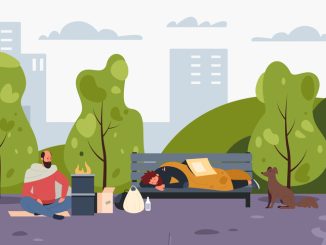As reported by The Independent, a new report reveals a stark health divide, with people in the most deprived regions more than twice as likely to be in poor health, facing economic inactivity, and experiencing lower household income
Overall, people living in the most deprived parts of the country are more than twice as likely to be in poor health as those living in the most affluent – and are around 40 per cent more likely to report economic inactivity.
Sickness and poor health is clearly linked to low productivity, high poverty and persistent unemployment, the study found.
The most recent data from the Office for National Statistics (ONS) shows the economic inactivity rate for those aged 16 to 64 is 20.8 per cent – the equivalent of 8.7 million people. This broadly means people were out of work and not actively looking for work or in full-time education.
Wales has 1.5 times the proportion of people in bad or very bad health compared to the south and 1.2 times the proportion of people who are economically inactive.
This suggests that the overall challenge of high economic inactivity in the UK – and the specific challenge of economic inactivity due to sickness – has a strong relationship with place.
The IPPR study said there is a “double injustice”, with regions with poorer health also experiencing lower household income, higher poverty and lower wealth.
It found northern cities and their surrounding areas, Midlands cities, coastal cities and rural places had the lowest levels of life expectancy and years of good health compared with more affluent places.
It also found higher numbers of people in receipt of personal independence payments, lower overall wealth, lower household income per head, worse early years development scores and lower rates of NVQ4+ qualifications.
The report said “having a good job” is good for both mental and physical health, and cuts the risk of early death.
However, it warned that work no longer offers a reliable route out of poverty, with 68 per cent of working-age adults in poverty living in a household where at least one adult is in work.
The highest levels of in-work poverty were found in London, Wales, and the north of England, the report said.
To help fix the problems, the study recommended a framework called Seven for Seven, which sets out the foundations for healthy lives – including healthy bodies, a safe home, a great start to life and freedom from addiction.
The IPPR also wants to see new health and prosperity improvement zones (HAPI), with powers to invest, raise local taxes and set missions in the worst-affected areas.
A recruitment drive is also needed for public health specialists, alongside the creation of new local apprenticeship opportunities and establishing a national health volunteering service, the report said.




Be the first to comment